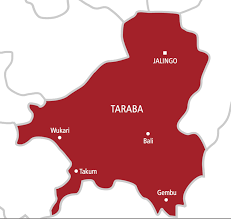Comments and Issues
Naira-for-Crude Deal: Catalyst for Nigeria’s Economic Growth
Published
1 year agoon
By
Marcel Okeke
The latest of some of the policies of the Bola Ahmed Tinubu-led Federal Government that have the potential to stimulate Nigeria’s economic progress is the Naira-for-Crude deal. Under this initiative, the Federal Government would ensure that crude oil is being supplied/sold to all local refineries (including the Dangote Refinery) in Naira; and their refined products (especially, Premium Motor Spirit, PMS) would also be sold in Naira. No more dollar!
The pilot phase of the deal is to run for six months (effective October 1, 2024) during which the Nigerian National Petroleum Company Limited (NNPCL) would be supplying crude oil to Dangote Refinery and others in Naira. Sequel to this would be a review of the initiative by the technical sub-committee on Domestic Sales of Crude Oil in Local Currency.
Before the Naira-for-Crude deal, Nigeria has been importing almost one hundred per cent of its PMS need, using the ruling exchange rate of the Naira-to-dollar per time. And because of the huge depreciation of the Naira in the foreign exchange (FX) market since the floatation of the local currency in June 2023, humongous sums are deployed to acquiring the dollar for the importation of PMS.
Specifically, data from the National Bureau of Statistics (NBS) show that a whooping N3.22 trillion was expended on PMS importation in the first quarter 2024. This marked a one hundred per cent increase in the value of PMS import compared to the same period of 2023 which stood at N1.6 trillion. The cost of PMS imports was N1.8 trillion in the fourth quarter of 2023; and for the whole year, it stood at N7.5 trillion, according to the NBS data.
Since all PMS importation transactions were done in dollars, it could be deducted that the dollar equivalent of the trillions of Naira expended till date were sourced from the FX market. It also follows that the demand for dollars in the FX market backed up by those huge sums has been a key source of the unrelenting pressure on the Naira. In other words, the aggregate demand for dollar in the FX market for the importation of PMS has been a major contributory factor to the persistent paucity of dollar in the forex market.
And the more the Naira depreciates against the dollar, the more the quantum of Naira that would be deployed to importing the essential commodity—PMS. Also, the higher the price of crude oil (and refined products) in the international market, the more trillions of Naira that would be spent to procure dollar for continued PMS importation. And this goes on ad infinitum, warranting the lingering fuel subsidy imbroglio in Nigeria.
It is therefore a flicker of light at the end of the tunnel that the Federal Government has come up with the Naira-for-Crude deal which will, all things being equal, ‘de-link’ the purchase of crude and sale of PMS from the volatility of the FX market and the vagaries of the global oil market. Again, all things being equal, the new initiative would lead to not only stability of the Naira in the forex market but also lead to gain of strength by the local currency against the dollar and other hard currencies.
Since the local refineries would be saved the hassles of sourcing dollars for their operations, it also follows that they could begin to increase their refining capacity. This is likely to lead to an end to PMS importation; thus, saving billions of dollars that Nigeria could invest in other critical sectors of the economy. Also, boosting local refining capacity would enhance Nigeria’s energy security—by ensuring a more reliable and self-sufficient refined products supply.
Already, according to some media reports, in anticipation of the positive fallouts of the Naira-for-Crude deal, three new refineries plan to produce PMS in the country. The three refineries include the 11,000 barrels per day (bpd) capacity Aradel Refinery in Rivers State, 20,000 bpd-capacity Clairgold Refinery in Delta State, and 12,000 bpd-capacity Azikel Refinery in Bayelsa State.
A consortium of investors from South Korea is also reported to have concluded plans to build four 100,000-barrel capacity refineries in various locations in Nigeria. Speaking in Lagos at a summit organized by the Crude Oil Refineries Owners Association of Nigeria, Minister of State for Petroleum Resources (Oil), Heineken Lokpobiri, who gave the information, said the Federal Government was encouraging investors to build refineries by providing an ‘open environment’ for all.
The Minister noted that the approval for the four refineries was recently granted to invite the consortium. “A recent approval was granted to invite to Nigeria a consortium of investors from South Korea, which intends to establish four 100,000 barrels-modal refineries in four different locations in Nigeria,” he said.
ALSO READ: Fuel Price Conspiracy: Is Dangote still the Messiah?
“We have adopted the public-private partnership model to unlock investment in the midstream and downstream segments of the oil and gas sector, which will lead to the establishment of more modular and mega refineries,” he narrated, adding that this would yield results “because the Federal Government is open to equity investment in modular refineries and other upcoming refineries as a step to ensure energy security.”
Lokpobiri said “The Nigerian Upstream Petroleum Regulatory Commission has developed and published the domestic crude supply obligation guidelines to ensure transparency in the oil industry and ensure access to feedstock by our local refineries.” The Minister summed up by saying “We will ensure the deregulation of the downstream sector is 100 per cent and put in place a necessary framework that will ease the impact on the poor masses.”
However, as these lofty ideas are beginning to unfold, the NNPCL appears to be taking steps that could constitute a cog in the wheel of the process. In yet another bizarre move, the public-owned oil behemoth (NNPCL) has suddenly relinquished its ‘sole off-taker’ role in the sales value chain of PMS from Dangote Refinery. This has unleashed another round of PMS pump price increases nationwide; in most places the price far exceeds N1000 per liter, effective October 9, 2024.
Obviously, this has manifested as another contrived fuel scarcity, as most petrol stations have opted to keep their stock and recalibrate their product prices. At present, transportation costs that had since gone through the roof has gone haywire once again. This will again feed into soaring prices of practically all goods and services: eventually resulting in sustaining the runaway inflationary trend.
This hyperinflationary milieu will, in several ways, act as counterpoise to the intended outcomes of the Economic Stabilization Bill (Law) and other policies of the Federal Government. High inflation connotes more impoverishment of the citizenry; lowering of purchasing power, as well as the standard and quality of life. It reflects as increasing cost of operations for businesses; and worsening operating environment.
However, since the Naira-for-Crude deal is just kicking-in, the next six months pilot phase of the initiative is most likely to smoothen whatever ‘rough edges’ there are around the process. The multiplicity of committees and sub-committees set up by the Federal Government to ensure the successful effectuation of the new initiative must be made to function well. The usual red tapes in the officialdom must be curtailed to achieve the objectives of the new deal.
In this regard too, every obstacle must be pulled down to facilitate and fast-track the take-off of the six or so new refineries that are already in the pipeline. With these, the local production and supply of PMS (all in Naira) would be enhanced and entrenched. This increase in number of refineries, and their improved production and supply of PMS will bring about some competition in the market—leading to likely downward price adjustment. Forces of demand and supply (as expected in a fully deregulated market) will come into play.
Also, the usual pressure on the Naira in the FX market owing to PMS importation would disappear—leading to stability in the forex market. In all, the much desired macroeconomic stability would begin to materialize. The Naira-for-Crude deal surely has the potential to be a catalyst for Nigeria’s economic recovery, growth and development.
- The author, Okeke, a practising Economist, Business Strategist, Sustainability expert and ex-Chief Economist of Zenith Bank Plc, lives in Lekki, Lagos. He can be reached via: [email protected] (08033075697 SMS only
Trending

 Football7 days ago
Football7 days agoChampions League: 12 Clubs knocked out as group phase ends

 News6 days ago
News6 days agoTinubu approves purchase of 2 new satellites to strengthen Nigeria’s digital infrastructure

 Comments and Issues1 week ago
Comments and Issues1 week agoUN Secretary-General Guterres: Rule of Law being replaced by Law of the Jungle

 Comments and Issues1 week ago
Comments and Issues1 week agoBeyond Hope: Why External Pressure Cannot Cure Internal Colonialism

 Comments and Issues1 week ago
Comments and Issues1 week agoYakubu Mohammed: Exit of a good man

 Latest1 week ago
Latest1 week agoKano governor’s aide vows to expose ‘true betrayers’ amid party disputes

 Comments and Issues1 week ago
Comments and Issues1 week agoOkowa, daughter and politics as family business

 Comments and Issues1 week ago
Comments and Issues1 week agoEchoes After Taraba

